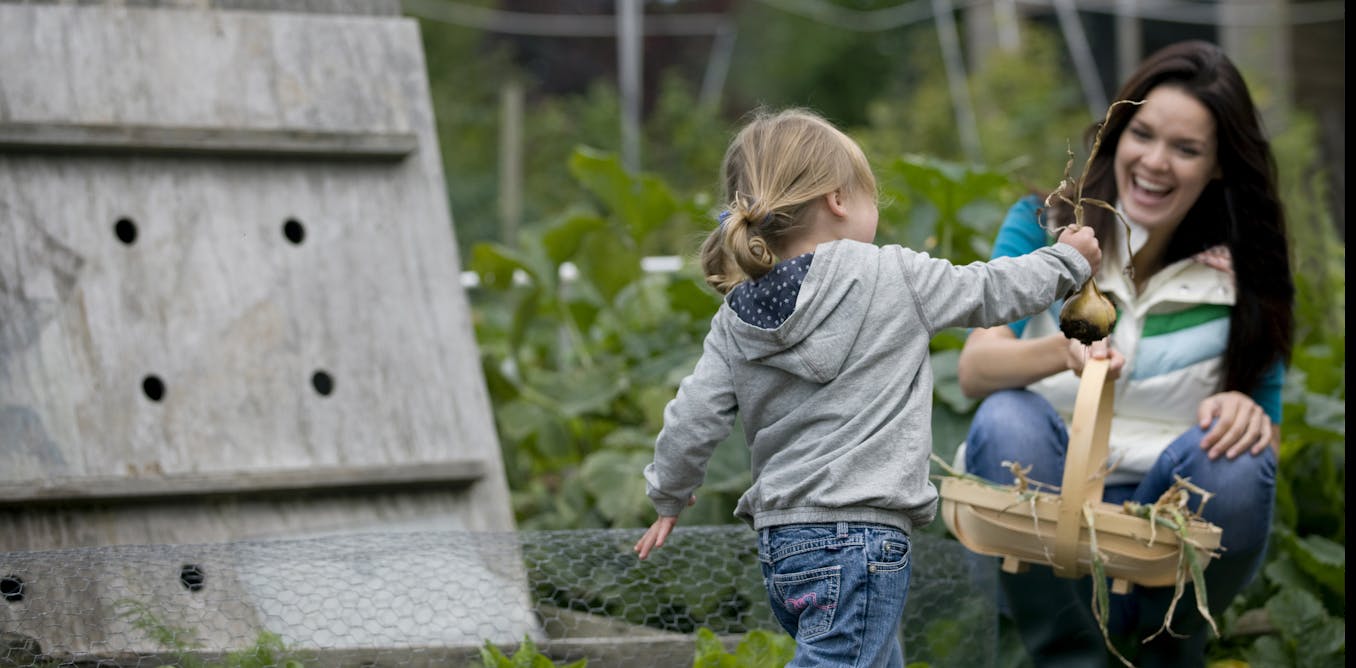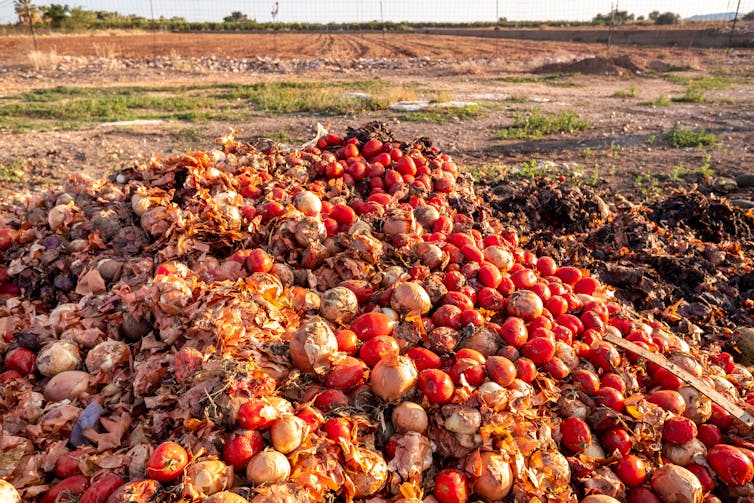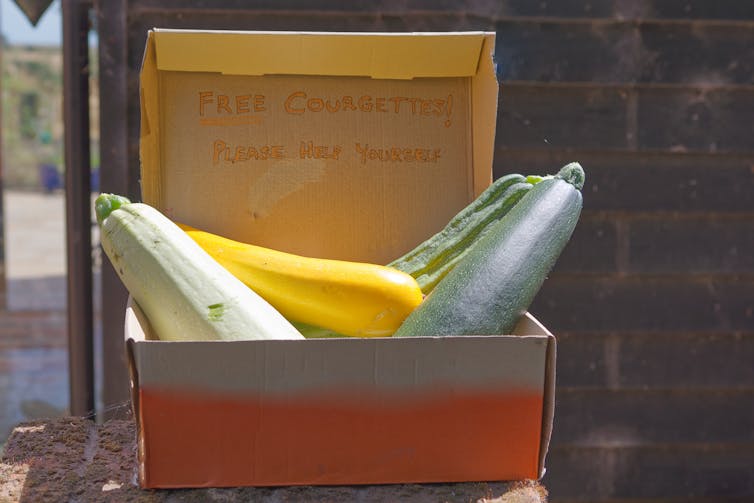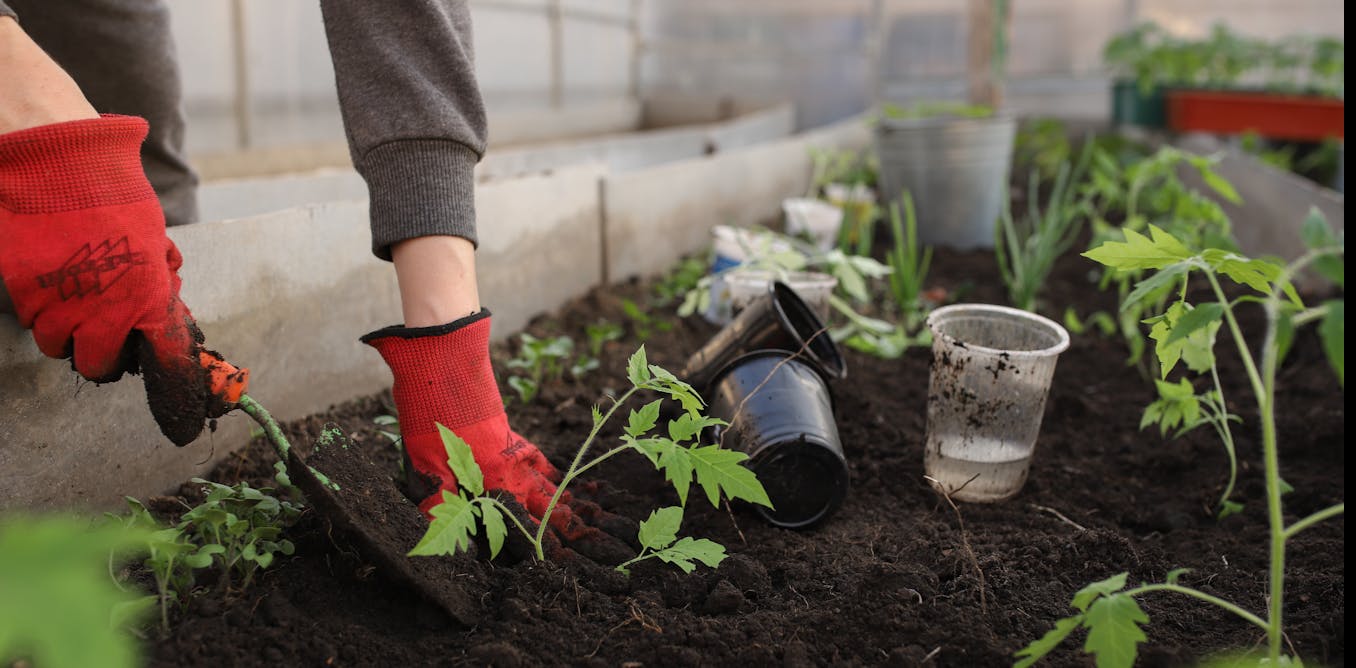
People who grow their own fruit and veg waste less food and eat more healthily, says research
Those who grow their own food in gardens and allotments waste less and eat more healthily – but not everyone has the chance to do so.
Sept. 12, 2023 • 7 min • Source
The rising cost of living is making it harder for people, especially those on lower incomes ( who often have poorer diets ), to afford to eat healthily . Despite this, households in the UK continue to waste a shocking amount of food – including around 68kg of fruit and vegetables each year.
Food waste is not only damaging to your pocket, it’s also bad for the environment too. Globally, 1.3 billion tonnes of food are wasted every year, generating about 8% of the world’s greenhouse gas emissions. These emissions arise from unused food at all stages of the food supply chain, from production to decomposition.
However, our recent study revealed that those who grow their own food in gardens and allotments waste an average of just 3.4kg of fruits and vegetables – 95% less than the UK average. These households adopted various practices to minimise food waste, including preserving or giving away their excess produce.
There has been renewed interest in growing fresh produce in gardens, community gardens and allotments in the UK and elsewhere in recent years. But the available supply of allotments is not enough to meet increasing demand .
Allocating more land for household fruit and vegetable production could make a significant contribution to the availability of fresh produce for urban residents.
Research has shown that using a mere 10% of the available space in the English city of Sheffield for food cultivation could supply enough fruit and vegetables to meet the needs of 15% of the city’s population. And more people growing their own food could also reduce waste.

Food diaries
Our study involved 197 households in the UK that grow their own food. We asked them to maintain a food diary, where they recorded the amounts of fruits and vegetables they acquired each week. We received complete records from 85 separate households.
They specified whether each item was cultivated in their garden or allotment, bought from shops or markets, sourced from other growers, or foraged in the wild. The households also recorded the quantity of the produce they gave away to family and friends, and the amounts they had to throw out.
Our findings suggest that individuals who grow their own food may be more inclined to avoid food wastage than the average person in the UK. This is possibly because they place a higher value on produce they had grown themselves.
The results align with earlier research that was conducted in Germany and Italy. This study found that the amount of discarded food was greatest among people who shopped exclusively in large supermarkets. People who purchased items from various small stores tended to waste less food, while those that grew their own food wasted the least.
Our findings also suggest that the households we studied can produce roughly half of all the vegetables, and 20% of the fruit, they consume annually. These households consumed 70% more fruits and vegetables (slightly more than six portions per day) than the national average.
Eating plenty of fruits and vegetables as part of a balanced and nutritious diet is key to maintaining good health. This kind of diet can help prevent diseases such as type 2 diabetes , certain cancers and heart disease .
Yet, in the UK, less than one-third of adults and only about 8% of teenagers eat their “five-a-day” . This target, which is based on advice from the World Health Organization , recommends eating at least five 80g portions of fruit and veg every day.

Grow your own food security
Growing your own food can improve access to fresh fruits and vegetables, promote good health and reduce food waste. However, several obstacles hinder involvement in household food production. These obstacles include limited access to the land, skills and time needed to grow your own fruit and veg.
Approximately one in eight UK households lacks access to a garden . And, since the 1950s, the availability of allotments throughout the UK has declined by 60% . This decline has been particularly evident in more deprived areas of the country, where people could benefit most from better availability of nutritious foods.
We also found that those who grew their own food dedicated approximately four hours each week to working on their allotment or garden. Unfortunately, not everyone has the luxury of having the time to do so.
Nonetheless, raising awareness about the benefits of home food production, beyond just food security and reducing waste, to include its positive impacts on social cohesion , overall wellbeing and biodiversity could encourage more people to participate. Increasing demand for growing space may also encourage local authorities to allocate more land for this purpose.
Whether you grow your own food or not, everyone can adopt mindful practices when purchasing or growing food. Planning ahead and freezing or sharing excess food with others to prevent it from going to waste are good options.
Read more: Five ways to cut down on food waste – and why it matters
But some food waste is inevitable. Composting it instead of sending it to landfill will substantially lower its impact on the planet.
Boglarka Zilla Gulyas received funding from an EPSRC PhD scholarship.
Jill Edmondson receives funding from NERC and EPSRC.

